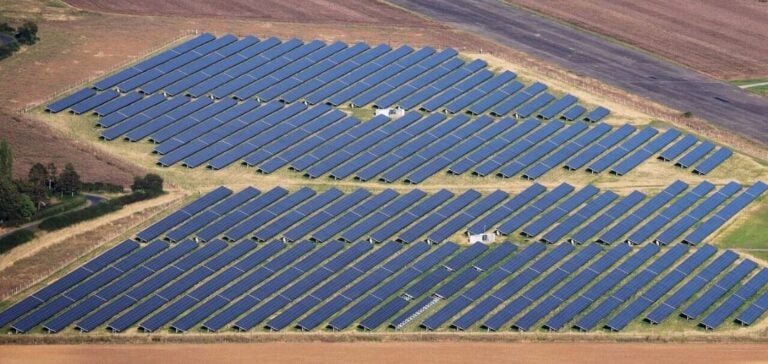Eurowind Energy, a major player in the development of renewable energy projects in Europe, recently signed an agreement to acquire 11 photovoltaic (PV) projects located in the Aveiro district of Portugal.
Each project has a capacity of 5 MW AC, and most of them are grouped into 15 MW clusters.
These projects are at an advanced stage of development, and should reach the “ready-to-build” stage between the third quarter of 2024 and the second quarter of 2025.
The contract signed between Eurowind Energy and developer Insun stipulates that the acquisition will only be finalized for projects reaching this stage.
This condition enables the company to limit its financial commitments to only those projects ready to start construction, guaranteeing an efficient allocation of its resources.
If all the projects materialize, they would add up to 55 MW of photovoltaic capacity, supplying around 36,100 homes with electricity and reducing CO2 emissions by over 30,800 tonnes a year.
Resource optimization and risk management
This acquisition is part of a strategy to optimize the company’s portfolio of photovoltaic assets in Portugal.
With a PV power plant already operational in Alenquer and several small photovoltaic production units (UPPs) under commissioning or construction, Eurowind Energy aims to almost double its installed capacity in the country to 120 MW.
This strategic development is the result of several months of negotiations between Eurowind Energy and Insun, an experienced developer with 2.5 GW of projects already developed and sold in Portugal and Romania.
The negotiation process was conducted with the aim of ensuring a smooth transition to project construction, with particular attention to risk reduction.
Eurowind Energy plans to launch a tender for the construction of the Balance of Plant, including the necessary civil, mechanical and electrical works, as well as the grid connection lines.
This process should begin shortly, in anticipation of projects reaching the “ready-to-build” stage.
Growth prospects and diversification
The acquisition of these solar projects is part of a broader strategy to diversify energy assets in Portugal.
Eurowind Energy is currently developing a portfolio of around 1 GW of renewable projects in the country, covering solar, wind, batteries and green hydrogen.
This diversification is crucial to strengthening the company’s resilience to energy market fluctuations, and to capturing opportunities in high-growth segments such as hydrogen.
By focusing on small-scale renewable energy projects, the company anticipates greater flexibility in asset management and better integration into the Portuguese power grid.
Portugal’s energy transition, fostered by supportive public policies and growing demand for renewable energy sources, offers attractive prospects for investors in the sector.
By collaborating with local developers such as Insun, Eurowind Energy also benefits from local expertise to bring these ambitious projects to fruition.
Context and challenges of the Portuguese energy market
Portugal’s energy market is undergoing a rapid transformation, with a significant increase in investment in renewable energies.
Recent initiatives by the Portuguese government to stimulate decarbonization and increase the share of renewable energies in the national energy mix offer substantial opportunities for players in the sector.
Eurowind Energy is part of this dynamic by strengthening its investments in Portugal, a country that is positioning itself as a potential leader in Europe’s energy transition.
However, the Portuguese market remains marked by increased competition and challenges linked to grid management and the integration of renewable energies.
Eurowind Energy’s decision to invest more in photovoltaic projects in Portugal demonstrates its determination to overcome these obstacles by focusing on high-quality assets and optimized risk management.
The company intends to capitalize on the strong local demand for green electricity and the market’s growth prospects.






















